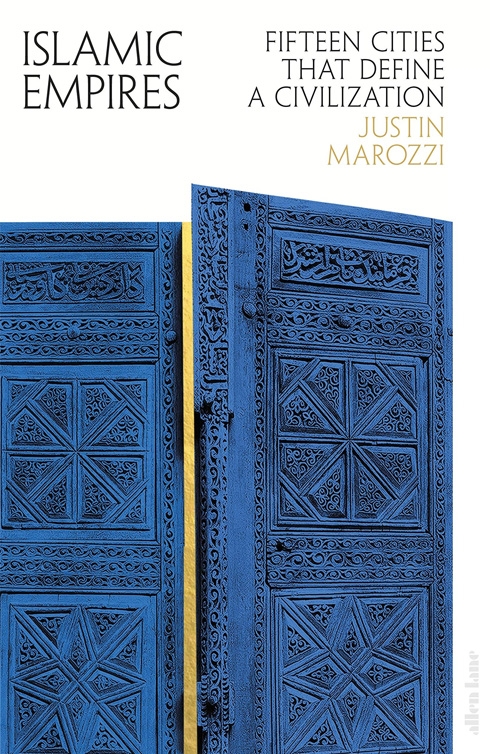The English journalist and historian Justin Marozzi frames this epic study as a corrective to current perceptions of the Arab world, both within it and without it: ‘the only thing we’re leading the world in is terrorism’ says an ‘embarrassed’ Tunisian friend quoted in the preface. Marozzi’s antidote is to examine the pinnacles of Islamic culture from the founding of Islam in the seventh century through to the oil-rich Gulf states of the twenty-first. Those pinnacles, he suggests, happen in cities (taking a cue from the Latin root of the word ‘civilisation’ and, implicitly, humanity’s current urban position). His 15 are delivered chronologically at a rate of roughly one per century: Mecca, Damascus, Baghdad (which in 1100 had a popu- lation 40 times bigger than London or Paris and about which Marozzi has previously published a monograph), Córdoba, Jerusalem, Cairo, Fez, Samarkand, Constantinople, Kabul, Isfahan, Tripoli, Beirut, Dubai and Doha. It’s the opposite in some ways of T. E. Lawrence’s romantic, ascetic pronouncements about the faith of the desert being impossible in towns.
The contemporary is contrasted with the past – we encounter Baghdad amid the sound of gunfire, police sirens and Black Hawk helicopters, and then travel back to the ninth century Abbasid city of libraries, hammams and water-powered clocks. By the end of the journey such histories begin to reverse as we enter present-day Doha, a city of high-end hotels, Rolls-Royces and luxury falcon hospitals, where 200 years ago what was then known as Bidaa comprised a fortified house, two guns, two huts and a building with a flagstaff. Arguably Marozzi never quite comes to terms with how Doha and before it Dubai and their postcolonial presents connect to Islam’s imperial pasts. In the middle are prophets, doctors, slave traders, pleasure seekers, warriors, mass murderers, scholars and merchants; Jews, Christians and Muslims briefly living in some kind of harmony in cities conquered by the Islamic sword; and, of course, in the fifteenth century, Timur’s horde rampaging across the world and leaving towers of severed heads outside a rebellious Damascus (not to mention mutilating women and massacring children) and Isfahan. Massacres crop up with rhythmic regularity from the time of the Prophet through to the mid-twentieth century; often the detailed accounting of wealth, wisdom, beauty (artistic, architectural and urbanistic) and corpses overwhelms the complexities of any sociopolitical account. There is a sense in which Marozzi’s detailed narratives fall into a kind of cycle, however different the geography he describes: commit
a massacre, become a tolerant master, watch your city rise, watch your successors become decadent, watch your city fall. Repeat. Whether this is the result of history or the author’s own fixations is something for the reader to decide.
There are times when it’s the literary equivalent to watching a dishwasher cycle. And beyond its description of all that Islam gave to the world, this book’s programmatic design is to situate Islam’s highs at times when its civilisation was tolerant of others and of various interpretations of its own faith; its lows when it was not. Lessons perhaps that inform the chaotic region as it stands today. One misses, as the author concedes, citing his reliance on personal experience, an account that incorporates Indonesia, home to the world’s largest Muslim population, or Pakistan. Nevertheless, Islamic Empires provides an extremely valuable overview of how Islamic civilisation rose, on multiple occasions, to greatness, how it declined and the beginnings of the ways in which it might be possible to see it rise again today.
From the Winter 2019 issue of ArtReview Asia
